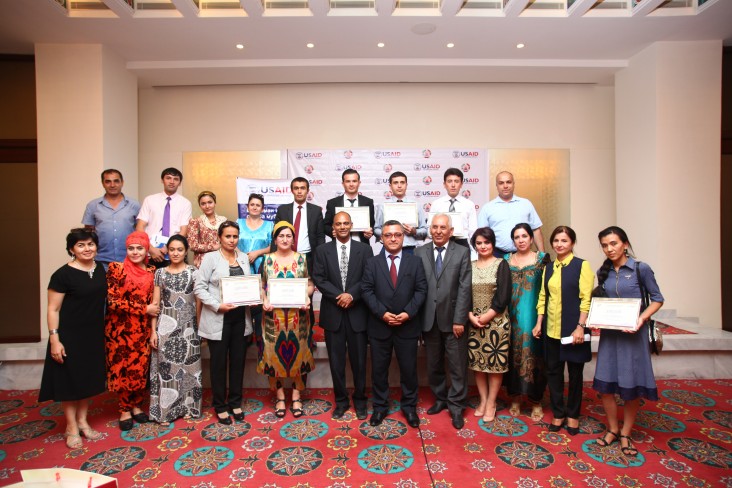
For Immediate Release
Dushanbe, Tajikistan - The U.S. Agency for International Development (USAID) and the Ministry of Health and Social Protection of the Population recognized journalists for best media stories covering tuberculosis (TB) during an award ceremony in Dushanbe on September 23, 2016. The ceremony was conducted in partnership with the National Center for Healthy Lifestyle.
According to the World Health Organization 9.6 million people are currently infected with TB, one of the most common infections in the world. Though it is preventable and curable, 1.5 million people still die every year from it. Major causes of the spread of TB include the lack of awareness among the general public on TB and pervasive stigma surrounding the disease.
Local media and journalists play a crucial role in raising public awareness and decreasing stigma and discrimination towards TB patients. USAID, in cooperation with local partners, provided training on TB reporting to 45 journalists in Tajikistan. The main focus of the training was to reduce TB-related stigma and educate families about effective diagnostic and treatment options.
More than 50 media outlets participated in the competition to identify the best media stories on TB-related issues. The jury, comprised of representatives of the Ministry of Health and Social Protection of the Population, TB specialists, and media experts, evaluated entries and selected best media pieces in Print, Electronic Media, and TV/Radio categories.
The USAID TB Control Program aims to reduce the burden of TB and the development of multi-drug resistant TB in Tajikistan. The program focuses on enhancing national policy development; improving access to diagnosis and treatment for vulnerable groups; supporting a patient-centered system of care; and strengthening laboratories and other parts of the health system in Sughd, Khatlon, and the Rasht Valley. The program, with an anticipated budget of $13.2 million over five years, is another example of how the U.S. government is working with the government of Tajikistan to help improve the health of Tajik citizens. USAID grant assistance to Tajikistan now averages $30 million each year of which approximately 30% is directed to healthcare.
USAID is the lead U.S. government agency that works to end extreme global poverty and enable resilient, democratic societies to realize their potential.







Comment
Make a general inquiry or suggest an improvement.